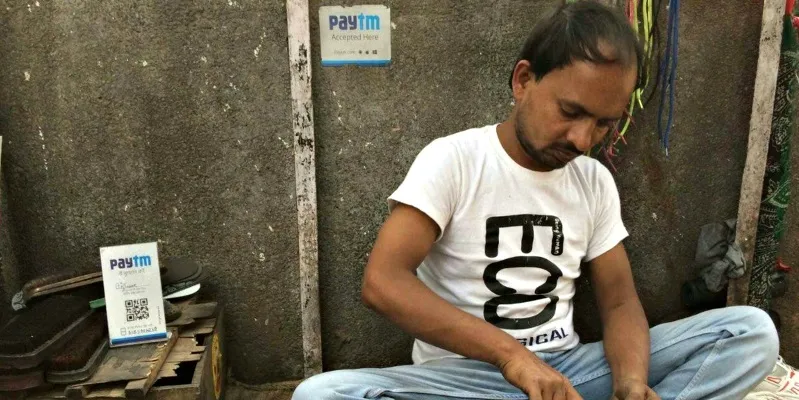Paytm guns for 1cr offline sellers with its QR code payments mechanism
It was reported today that mobile payments company Paytm has claimed that it will soon reach one crore offline sellers through its QR code offering.

Finding an alternative to the expensive Point of Sale (PoS) machines Paytm started deploying QR code cards with offline merchants along with registering them on the platform. In multiple official statements, the company claimed that their offline merchant base stood at one lakh in November, a figure which increased to 35 lakh in the aftermath of demonetisation.
In December, Paytm had told YourStory that it planned to hire a ground sales and activation staff of 20,000 individuals. At the time, Paytm had 12,000 individuals on ground.
Subsequently, by mid-December, Paytm announced opening an office in Andhra Pradesh and Telangana and adding over 1,000 offline agents to its Andhra Pradesh and Telangana team.
Further, according to Senior Vice President at Paytm Deepak Abott, in order to add more momentum to the traction, the company is making the app available in regional languages and expanding the merchant acquisition network in smaller towns.
Just last week, we saw the Indian Finance Minister, Arun Jaitley, highlighting the importance of digital payments. While providing impetus to digital payments and speaking about the Bharat Interface for Money (BHIM) app and Aadhaar Pay, the minister also announced the deployment of 10 lakh PoS machines by March.
On the other end is Indian wallet major MobiKwik which claims to have a direct merchant base of 10 lakh merchants.
Fall in digital payments
However, as India starts to remonetise, earlier this week, it was reported that according to representative data by the Reserve Bank of India (RBI), digital payments saw a 10.2 percent slump by volume, 7 percent lower than January 2017 in terms of value.
Moreover, the number of digital transactions fell from 1,027.7 million in December to 922.9 million in January. In terms of value, this number saw a decline from Rs 105.4 lakh crore in December to Rs 98 lakh crore in January.







